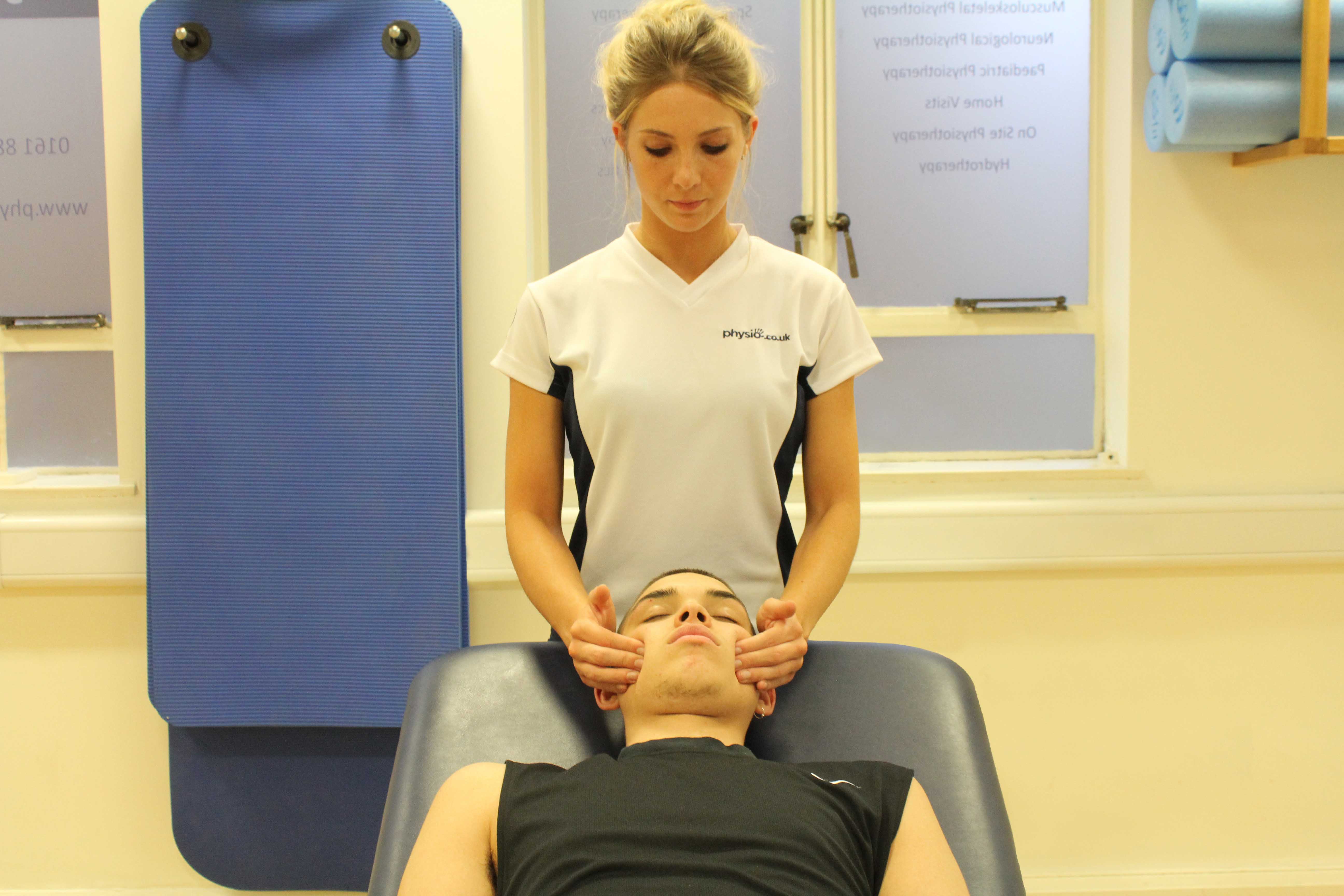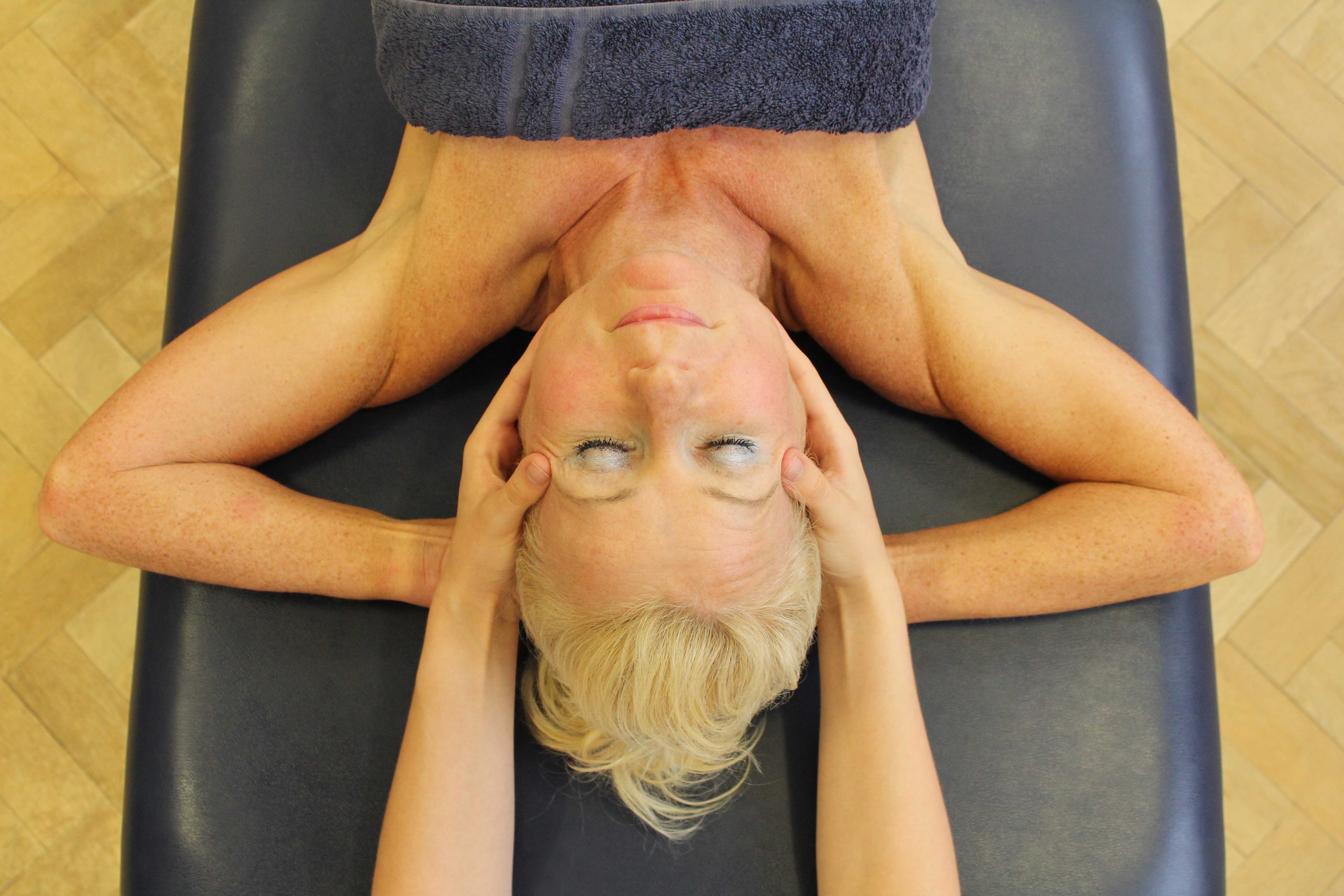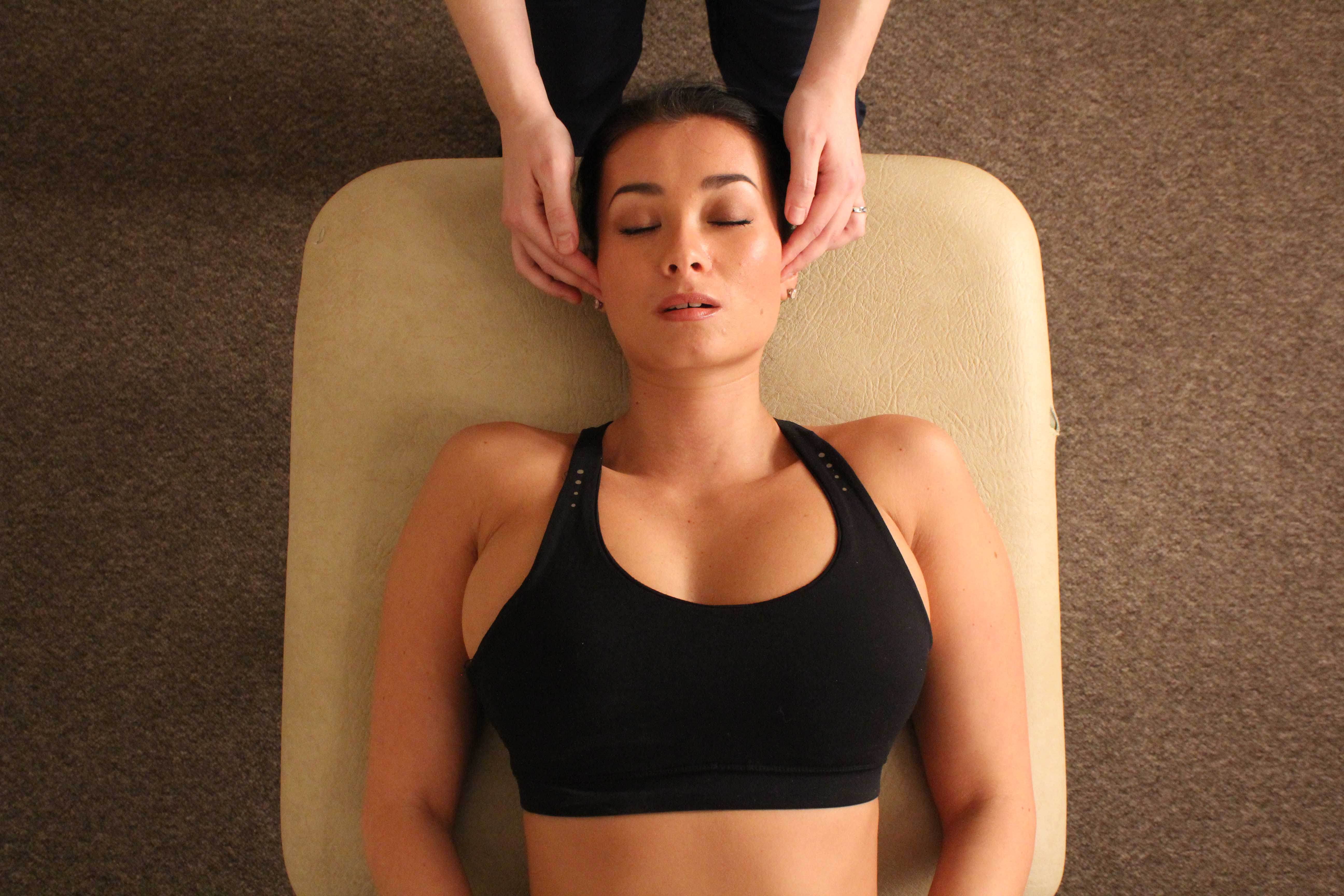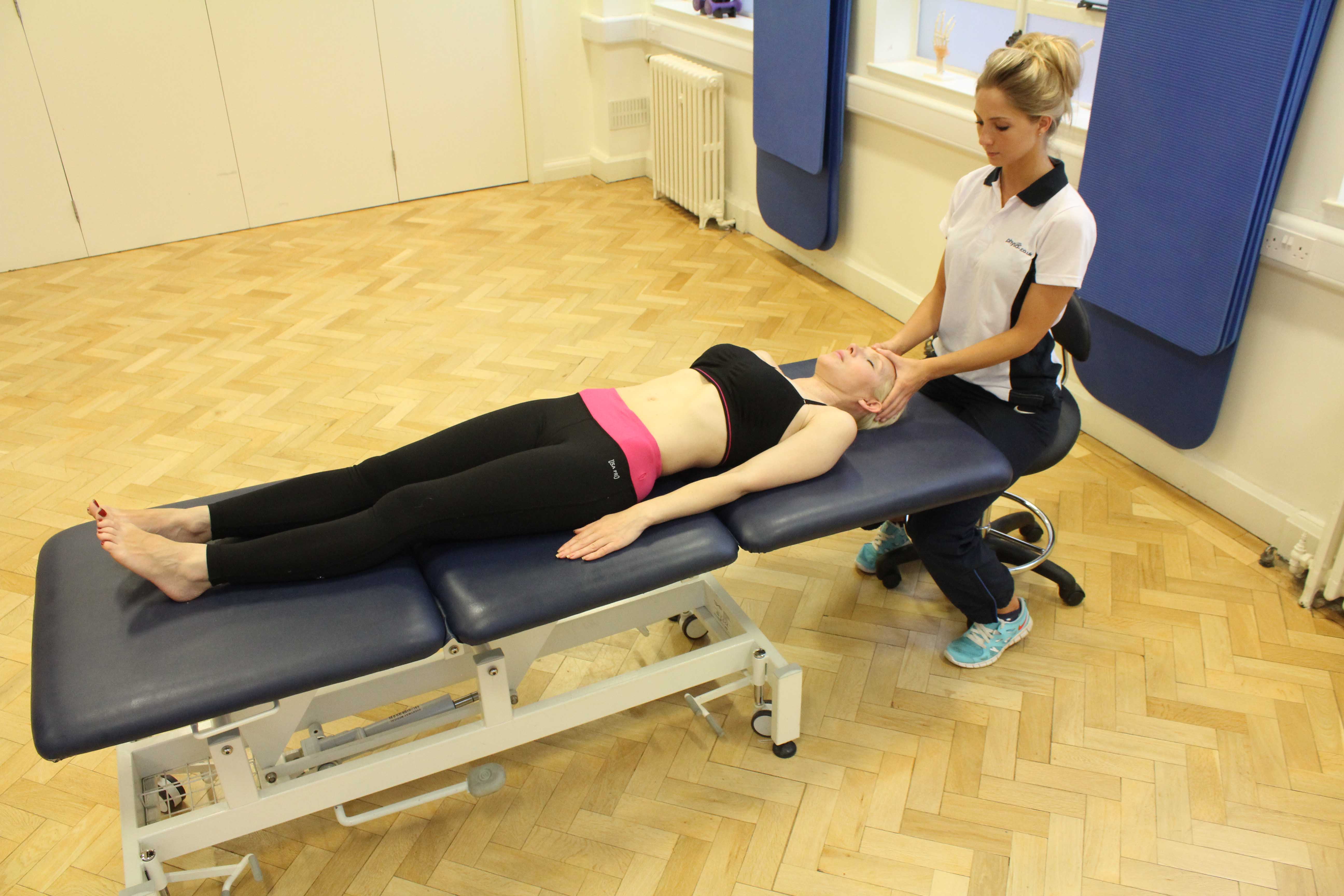What is facial palsy?
Facial palsy is paralysis of part of the face, particularly of the muscles around the mouth and eyes. This is due to the nerve that controls these muscles, the facial nerve, not functioning properly.
What causes facial palsy?
There can be several causes of facial palsy. These include:
- Congenital (from birth)
- Bell’s palsy
- Infection
- Lack of blood supply to the nerve
- A tumour can compress and damage the nerve
- Birth trauma
- A fracture to the skull
 Above: Soft tissue massage of head and face to releive stiffness and stimulate neurological repair
Above: Soft tissue massage of head and face to releive stiffness and stimulate neurological repairWhat are the symptoms of facial palsy?
Facial palsy commonly affects one half of the face and can cause the following symptoms:
- Affected half of the face becomes flattened
- Forehead wrinkles lost on affected side
- A dropped eyebrow on the affected side
- Eye on the affected side difficult to close, watery, red, blurred vision
- Corner of the mouth droopy on the affected side
- Unable to whistle
- Pain in front of or behind the ear on the affected side or increased
- sensitivity to sound
- Altered taste
Physiotherapy for facial palsy
At Physio.co.uk our specialised physiotherapists are experienced at treatment facial palsy. Physiotherapy is mainly aimed at regaining function and may include:
- Increasing control of facial movements/expressions
- Increasing range of movement
- Improving eye movement
- Improving self-esteem
- Returning function such as speaking, eating and closing the eyes
 Above: Soft tissue massage of head and face to releive stiffness and stimulate neurological repair
Above: Soft tissue massage of head and face to releive stiffness and stimulate neurological repairTo achieve these results your physiotherapist will carry out an assessment and then discuss what you can achieve and the treatments that can be used. Treatment may include:
- Stretching exercises
- Facial muscle exercise programme
- Electrical stimulation to preserve facial muscle
- Massage
- Techniques to improve sensation of the facial muscles
 Above: Soft tissue massage apllied to the head and face to releive aching and stimulate repair of muscular inervation
Above: Soft tissue massage apllied to the head and face to releive aching and stimulate repair of muscular inervationCan facial palsy cause any long-term effects?
Facial palsy can vary between individuals. For some people treatment may be very effective and reduce symptoms, however, it may not be as effective for others and they may need further specialised treatment.
 Above: Massage of the facial muscles to stimulate damaged neurological tissue repair
Above: Massage of the facial muscles to stimulate damaged neurological tissue repairTo arrange an assessment with Physio.co.uk please email office@physio.co.uk or call 0330 088 7800.

 0330 088 7800
0330 088 7800

































